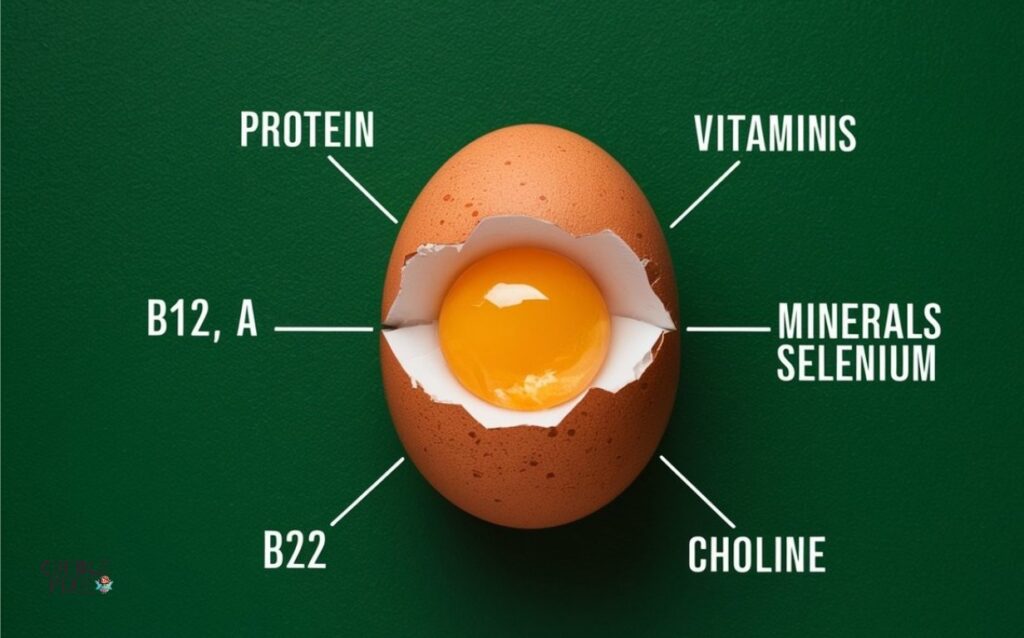Breastfeeding mothers often find themselves navigating a myriad of dietary recommendations to ensure their babies receive the best nutrition possible. One common query is whether consuming eggs can affect breast milk and, consequently, the health of their infants. This article dives into the nutritional benefits of eggs, potential effects on breast milk, and considerations for allergies, providing a well-rounded view backed by medical research and expert opinions.
In This Article
Nutritional Benefits of Eggs for Breastfeeding Mothers

Eggs are often heralded as a nutritional powerhouse, packed with essential nutrients that benefit both mothers and their babies. Here’s a closer look at what makes eggs such a valuable addition to a breastfeeding diet:
- High-Quality Protein: Eggs provide a complete source of protein, containing all nine essential amino acids that support muscle repair and growth.
- Vitamins and Minerals: Eggs are rich in vitamins such as B12, D, and A, and minerals like iron and selenium, which are crucial for the mother’s health and the baby’s development.
- Choline: This nutrient is vital for brain health and development. Adequate choline intake during breastfeeding can support cognitive development in infants .
Potential Effects on Breast Milk
Eating eggs can have various effects on the composition of breast milk, which can, in turn, influence the infant’s health. Studies have shown several potential benefits:
- Enhanced Nutritional Profile: The nutrients in eggs, especially omega-3 fatty acids and choline, can enrich the breast milk, contributing to the baby’s neurological development.
- Immune Benefits: Research suggests that maternal consumption of eggs may promote immune tolerance in infants, potentially reducing the risk of allergies later in life .
A study published in the Journal of Nutritional Biochemistry found that lactating mothers who consumed eggs had higher levels of beneficial nutrients in their milk, supporting better infant growth and health outcomes .
Egg Allergies: What Breastfeeding Mothers Need to Know
While eggs are nutritious, they are also one of the most common allergens. Here’s what breastfeeding mothers need to consider:
- Symptoms of Egg Allergies in Infants: These can include hives, eczema, gastrointestinal distress, and, in severe cases, anaphylaxis. If your baby shows any signs of an allergic reaction after breastfeeding, consult a healthcare provider immediately.
- Risk Factors: A family history of allergies can increase the likelihood of an infant developing an egg allergy. In such cases, mothers should discuss dietary choices with their pediatrician .
Safety Guidelines for Eating Eggs During Breastfeeding

To safely incorporate eggs into your diet while breastfeeding, follow these expert recommendations:
- Ensure Freshness and Proper Cooking: Always eat fresh eggs that are properly cooked to reduce the risk of foodborne illnesses. Avoid raw or undercooked eggs.
- Moderation is Key: While eggs are beneficial, it’s best to consume them in moderation. A general guideline is to include up to one egg per day in your diet.
- Variety and Balance: Ensure your diet is balanced and varied, including a range of protein sources and other nutrients .
FAQs on Eating Eggs While Breastfeeding
Can eating eggs cause colic in my baby?
There’s no direct evidence linking egg consumption to colic. However, if you suspect a correlation, consider eliminating eggs from your diet to see if there’s an improvement.
How many eggs can I eat per day?
Experts generally recommend up to one egg per day as part of a balanced diet, but individual needs can vary. Consult your healthcare provider for personalized advice.
Are there any specific egg recipes that are particularly good for breastfeeding mothers?
Absolutely! Simple, nutritious recipes like boiled eggs, omelets loaded with vegetables, or scrambled eggs with spinach and tomatoes are great options.
Expert Opinions
Many breastfeeding mothers have shared positive experiences with eating eggs, noting improved energy levels and overall well-being. Pediatricians often highlight the benefits of including eggs in a breastfeeding diet for their rich nutritional profile.
Dr. Emily Johnson, a pediatric nutritionist, states, “Eggs are an excellent source of vital nutrients that support both the mother and the baby. As long as there are no allergies, they can be a valuable part of a breastfeeding mother’s diet.”
Recipes for Breastfeeding Mothers
Spinach and Tomato Scrambled Eggs
- Ingredients:
- 2 large eggs
- 1 cup fresh spinach
- 1 small tomato, diced
- Salt and pepper to taste
- 1 tbsp olive oil
- Instructions:
- Heat the olive oil in a pan over medium heat.
- Add the spinach and tomato, cooking until the spinach is wilted.
- Beat the eggs in a bowl, then pour into the pan.
- Stir continuously until the eggs are fully cooked.
- Season with salt and pepper, and serve hot.
This recipe provides a healthy dose of protein, vitamins, and antioxidants, making it a perfect choice for a nutritious breakfast.
Final Words
Incorporating eggs into your diet while breastfeeding can offer numerous benefits, from enhancing the nutritional quality of your breast milk to supporting your baby’s growth and immune health. However, it’s important to be mindful of potential allergies and to consult with healthcare providers for personalized advice. By understanding the effects of eating eggs on breast milk, you can make informed dietary choices that support both your health and your baby’s well-being.
References
- National Institutes of Health – Office of Dietary Supplements. Choline
- Mayo Clinic. Egg allergy
- Journal of Nutritional Biochemistry. Impact of maternal egg consumption on breast milk composition
- PubMed. Dietary practices and allergies in breastfeeding
- National Center for Biotechnology Information. Egg allergy in infants: A review
- American Academy of Allergy, Asthma & Immunology. Egg Allergy Symptoms
- Cleveland Clinic. Egg Allergy: Symptoms, Tests, and Treatment
- Harvard T.H. Chan School of Public Health. The Nutrition Source: Protein
- Academy of Nutrition and Dietetics. Why Eggs Are a Cracking Good Source of Protein
